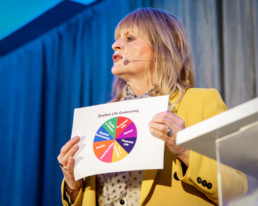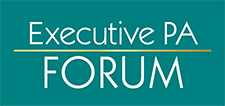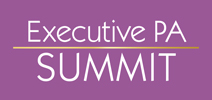Procrastination and its Links to Perfectionism
Procrastination and its Links to Perfectionism…Plus 7 Simple Steps You Can Take to Banish Procrastination for Good (feat. guest Roseanne Connolly)
Is procrastination just another word for a lack of willpower or getting your priorities right? Or is it the result of high standards and perfectionism?
On the surface, procrastination may seem to be an action compelled by apathy. However, once we look deeper, it’s clear that this issue is more complex than it seems.
We’ll be taking a look at the psychology behind the issue, as well as advice for how to overcome procrastination, with insights from Roseanne Connolly, Chartered Company Secretary & Governance Professional, and the current APAI Executive Committee Chair.

The Psychology of Procrastination


Perfectionism is often suggested as the root cause of procrastination. The idea is that the perfectionist fears being anything less-than perfect, and therefore will often put off this task to which they’ve attached an impossibly high standard.
Studies into the link between perfectionism and procrastination have had varied results. For example, this article purports that the link between perfectionism and procrastination is a myth. However, there are a number of studies that refute this notion: for example, this study (albeit related to academic students), highlights the positive correlation between procrastination and perfectionism.
Another study also contains findings that argue for the procrastination-perfectionism relationship, detailing the ‘discrepancies’ between how a person views themselves, and how they think they should be. The researchers’ findings indicate that individuals with wider ‘discrepancies’ tend to procrastinate more, as they assume they will not achieve the standards they have set out for themselves: ‘The perception of falling short of one’s own standards does not bolster task-approach; rather, it triggers procrastination.’ It’s a sort of all or nothing mindset: if I can’t do it perfectly, what’s the point?
In Roseanne’s experience, there is a definite link between the two. ‘I can only speak for myself but have met others with similar behaviours. I try to design/imagine the most perfect, effective, efficient outcome and then I re-design and improve. This all happens in my mind though. The task/event is then procrastinated because of 1) the pursuit of perfection and b) being a procrastinator!’
What’s more, we know that putting off a task often involves completing another less urgent task in its place. While this is purely anecdotal evidence, it supports the idea that apathy isn’t necessarily what’s really going on here.
Present Self vs. Future Self and Immediate Gratification
The disconnect we feel between our present selves and our future selves is one of the biggest hurdles in reaching our goals. A classic example of this is the infamous marshmallow test, in which children were given one marshmallow, and told that if they refrained from eating it, they would get a second one after fifteen minutes. As expected, many of the children (2 out of 3) couldn’t resist the temptation, and gave in to the immediate gratification of eating their one and only marshmallow. Here we see a clear example of people prioritising their present selves and sabotaging future goals and long-term benefits.


Reassuringly it’s a human tendency to seek immediate gratification and to struggle with self-control, so we needn’t feel ashamed of our procrastinating ways. If we’re looking to change our habits, however, understanding the ‘why’ behind our behaviour is the first step.
Once we do this, we can reconcile our future selves with our present selves and begin to break the habit.
The Pros and Cons
There are some positives we can glean from procrastination. For example, many of us thrive under pressure, and if procrastination is good for anything – it’s for turning up the heat.
While Roseanne can find some benefits to procrastination, ultimately she deems it as less than effective: ‘The only positive aspect I can think of is that the delay sometimes allows more information to come to light which can be helpful. Overall, I would recommend not procrastinating.’

It’s a safe bet to say that most of us would agree with Roseanne. Let’s face it: procrastination usually makes us feel bad. Even though we’re obtaining the instant gratification of not having to do the task at hand, putting off an important task only worsens the feelings of anxiety, as we now must feel anxious about not getting it done in time. Another shortcoming of putting things off is that you may not leave sufficient time to deal with unexpected roadblocks that may crop up closer to the deadline. As event and project managers we know this all too well and it’s always a good idea to allow for contingencies should things not go to plan.
Simple Steps to Overcome Procrastination
Understanding the cause of procrastination, and recognising the drawbacks will set you on the right path to breaking this habit. Here are 7 simple steps you can take to change your ways:
- Increase the chance for immediate rewards and/or immediate consequences. For example, a long-term benefit of exercising might be to lose weight, whereas a short-term ‘reward’ of exercising is better sleep. Conversely, an immediate consequence here might be that choosing not to exercise today will mean you won’t sleep as soundly tonight. Another approach is to incorporate something you enjoy into the task that you’re dreading, for example listening to your favourite podcast while you clean the kitchen.

- Obtain a deeper understanding of how your decisions in the present will affect you in the future.
- Recognise that the cons of procrastination outweigh the pros, as detailed above.

The biggest hurdle for many people, and especially for procrastinators, is getting started. This tends to happen as we build up a task in our heads, making it out to be more tedious or time-consuming than it will be in reality. How many times have you started something and thought, ‘this isn’t as bad as I thought it would be’?
You can mitigate this by carrying out any or all of the following steps:
- Make starting easier, e.g. having an easily accessible and tidy workspace, ensure you have the necessary software installed, etc.
- Obtain a deeper understanding of how your decisions in the present will affect you in the future.
- Make your ‘start’ as effective as possible. This will be different for everyone. Some will prefer to start with the easiest task, some will prefer the hardest – there are pros and cons to each. [Check out Brian Tracy’s Eat that Frog book for more on that]. Starting with the most straightforward of tasks eases you into your workload, and allows you to shorten your to-do list easily, leaving the remainder of the work seem less intimidating. However, this does mean that you have all the difficult tasks to ‘look forward’ to afterwards. Kicking things off with the hardest task can be draining, leaving you demotivated to continue with the rest of your workload enthusiastically. However, it gets the worst of it out of the way quickly…the most important thing here is to find what works for you, what causes the least amount of anxiety and ultimately gets you to your end goal faster
Just as procrastination becomes a habit, avoiding procrastination is also a habit that you need to develop. Taking small steps and applying the guidelines mentioned in this article to your daily working routine is a good strategy to begin to form more efficient habits that will last a lifetime.
Roseanne Connolly will be speaking at the Executive PA Forum 2020. Read more about the details of her talk, as well as info on the rest of the speaker line-up here: https://bit.ly/3dpK8kQ
References:
Psychologytoday.com – Procrastination and the perfectionism myth
Mindfulness, Self-care, and Avoiding Burnout
Mindfulness, Self-care, and Avoiding Burnout (feat. guest writer Elizabeth Whelan)

It is a fact that individuals who engage in mindfulness are better equipped to deal with the stresses and strains of professional and personal life; they are more productive, and are ready for anything that life today brings.
Elizabeth Whelan, Zestivo
Executive Assistants, PAs and office support professionals are no strangers to stress who demonstrate the epitome of keeping calm under pressure, juggling several tasks at once, and striving to keep things running without a hitch. With the added strain of trying to cope during a global pandemic and lockdown, it’s no wonder many of us are feeling particularly tense at the moment.
Stress can be a help and a hindrance to our work. It can be a driving force, encouraging us to complete things on time and to the best of our ability. However, it often works to our detriment, causing us to procrastinate, lose focus, and sometimes we can experience adverse effects on our health.
While work-related stress does take its toll on plenty of people, there are some professionals out there that are able to take it in their stride. This may be because certain personalities are simply more suited to pressure-filled situations. Another possible reason is that these employees have an effective toolkit that enables them to handle the heat well.
And that’s the key when it comes to addressing the stress in our life. Unfortunately, it’s near impossible to eradicate it completely, but the good news is, there are plenty of ways to manage it effectively. What’s more, there are experts out there who can help.
This week we spoke with health and wellbeing expert, Elizabeth Whelan of Zestivo, who provided us with advice on how to cope with stress, implement mindfulness and self-care into our routine, and key steps to avoid burnout.

Elizabeth is an avid advocate for mindfulness, which is an important aspect of managing stress. “Mindfulness has been around for a long time”, she says, “but has developed far greater importance over the last few months as a result of the fear, anxiety, and uncertainty generated by Covid 19. As we know the role of Executive PA’s and support colleagues is challenging in itself, but with the development of working from home, greater reliance on technology, and changing work environments, these challenges are ever greater. It is important therefore that we develop coping techniques to assist us in our daily routines, and mindfulness can play a significant part in this journey.”
So how exactly do we ensure that we approach work (and life in general) in a mindful way? According to Elizabeth, “mindfulness is about maintaining a moment by moment awareness of your thoughts, feelings, bodily sensations, and the surrounding environment through a gentle nurturing lead. At Zestivo, we promote 10 principles of Mindful Living www.zestivo.com. These are easy ways to incorporate mindfulness into your daily routine. “
The improvements that mindfulness brings to peoples’ lives speak for themselves. “It is a fact that individuals who engage in mindfulness are better equipped to deal with the stresses and strains of professional and personal life; they are more productive, and are ready for anything that life today brings.”
Self-care is “crucial” as we are faced with new circumstances and attempt to reconcile this “against an ever-changing environment”. It is the foundation of maintaining good health, mentally and physically. It involves giving ourselves sufficient nurture and respect in order to foster a healthy mindset.
Elizabeth outlines her steps to incorporating self-care into your routine as follows:

Elizabeth outlines her steps to incorporating self-care into your routine as follows:
Elizabeth’s Key Advice
“Mindfulness can assist this key component of your life by adopting a number of simple steps:
(A) Positive thinking
Your thoughts are a real force and energy and are having an effect on your life. You need to constantly be aware of your thoughts. When negative thoughts appear use the cancel, clear, and delete principle and replace these thoughts with positive alternatives. Remember you have a lot of positives in your life and by concentrating on these it will increase your productivity and your overall ability to achieve.
(B) Create a structure around your day
A win in the morning is a win for the day! Having a good morning routine is key to a successful day. Where possible start your day with positive thoughts, 10 minutes of mindful meditation, exercise, and a healthy nurturing breakfast. Structure your day if you are working from home, keep to a schedule with breaks every 30 minutes. Be focused on work goals, avoid the kitchen or other distractions until lunch or tea breaks. Have boundaries with family to avoid any conflicts or confusion and very importantly be clear what your work tasks are for the day.
C) Boost your immunity
Our immune system is our last line of defense against any illness and especially this virus. Fuelling your body with the good stuff, immune-boosting life energy foods is essential. Selecting tasty nourishing foods you love and using them to create mouth-watering meals. Cut down on your sugar intake; as sugar is an enemy of your immune system, it will zap your energies and can interfere with the way your body fights disease.
You need to put in place a regular eating routine ensuring you are eating a good breakfast, taking a healthy mid-day break, and consuming a nutritious evening meal. Drinking at least 6 to 8 glasses of water every day will hydrate the body and increase your energy. Beware of binge eating, overconsumption of fizzy drinks and overeating as these will drain the body’s energies. Meditating will boost your immune system, taking 10 to 20 minutes every day to relax the mind and connect.
(D) Protect yourself against negativity
While we can all take advantage of today’s amazing technology, we have access to, we need to keep it in perspective. Constantly watching and listening to news feeds on the COVID-19 virus development or economic recession can push individuals into fear and panic causing stress and anxiety. So, my advice is to minimize your exposure to news bulletins and reduce your viewing to once or twice a day.
(E) Togetherness
No matter what at the end of the day we all need one another. It is essential that we have daily contact over the phone or skype with friends, family and work colleagues to keep morale going. Although physical connections are limited, these can be easily substituted with other forms of interconnectivity to help us through each day.”
Elizabeth also highlights the side effects of experiencing extreme fatigue in response to new stressors that we are encountering. “With working at home now in vogue and increased pressures on Executive Assistants and PAs, you could be vulnerable to burnout. Burnout is a state of emotional physical and mental exhaustion caused by excessive and prolonged stress.”

It goes without saying that you need to be able to recognise that you are burned out in order to start taking steps to recover. Elizabeth gives some key symptoms to look out for:
- Every day is a bad day
- Frustration with work and home life
- Exhausted all the time
- You feel nothing makes a difference
- You feel not appreciated and have low self-esteem
So, you’ve ticked the boxes and concluded that your symptoms are more than those of just regular, everyday stress. What happens next?
“The main actions you need to take to address this serious condition are:
- Recognise: Look out for the worrying signs.
- Reverse: Undo the damage, maybe seeking support and manage your state.
- Resilience: Build your resilience by following the Zestivo principles and self-care steps.
- Remember to succeed: You can turn to others for help and most essential of all – have a positive mindset.”
Elizabeth also advises staying present as much as possible and taking a “day by day approach”, in order to stave off any anxiety that this situation is causing. “We are living in unprecedented times and the best way to get through it is to live your life in a more mindful way by taking each day as it comes. This gives you a sense of control over your daily life and the lives of those around you.”
“Make the rest of your life the best of your life”
Divine health, light, love and abundant blessings.
Elizabeth Whelan will be delivering her workshop ‘How to Avoid Burnout’ at the Executive PA Forum 2020 on Wednesday, November 4th. More details here.
Working from Home Can Work!
Note from Jackie:
2020 and beyond! I am sure you will agree that we are in a changing world and nothing nor no one could have predicted where we are today. However, it is so important that we continue to connect, support and motivate each other during these unprecedented times. Be that change agent and continue to learn. Thank you Fiona and Aisling for this opportunity. You have been at the heart of Ireland’s platform in supporting Office Managers, PA’s, VA’s and business support professionals.“

Background on Jackie
Company: Link Group, Belfast (Financial Services Industry – Banking and Credit Management)
Role: Office Manager 3 years in April 2017. I am first point of contact with overall responsibility for the safety, health and environmental (SH&E) well-being of 70 staff in the Belfast office and part of the wider facilities team based in Dublin and Maynooth. I view my role as a three pronged approach: People First: with day to day HR duties, processing leave, training, travel and expenses, diary management. Systems and processes: updating various management information systems including eFinance / Epurchasing, IT support, corporate communications/ events management Facilities: carry out all risk assessments, monthly SH&E checks regarding office facilities. I am also the Qualified Display Screen Equipment (DSE) escalation assessor, Fire Warden and First Aid representative
Speaking from your own perspective, how have you adjusted to life working from home?
Under normal circumstances I have always had a positive attitude to change – a real change agent who adjusts and can focus on other people and their interactions however this is not normal circumstances so it has taken some time to adjust to home working.
No commute! Gone is the early morning 2000 step count made up by a brisk walk to the Park and Ride for Public Transport and in its place 30 paces down stairs to my home working station. During my 30 minute journey into the city centre I would check out Twitter / LinkedIn or read my book or have a chat.
What has been the biggest challenge for you?
There are 5 adults and one teenager at home, and all but one (front line worker) was jockeying for a work space! Prioritisation, delegation, time management and conflict resolution skills were put to the test to find a resolution that met everyone’s needs!
How do you organise your time and space in the home , home v office?
At first, I didn’t take regular breaks including lunch. I had a real case of presenteeism ( that is a word?) I had to be accountable and reachable. I didn’t want to miss a call, I had to be at my PC, or checking my phone. Now I am more settled and realistic in terms of flexibility. I go for a walk at lunchtime and now when I am on the phone I get up from my PC and walk around the house or the garden. I am going reaching my 10,000 step target which to me is important. I read Niamh Smithers’ interview and bought a white board so I can visually keep my ‘to do list’ up to date.
I really miss the social interaction with my colleagues, waiting on a response or resolving IT issues
What opportunities have you seen?
Working from home can work. Keeping in contact with conference calls, Zoom calls for both staff and family is important especially for people who are self-isolating at home alone. The difference between lone working and working alone. Knowing your colleagues and providing support even if it is a call. Not everyone is IT savvy! Continuing with Belfast PA Forum committee meetings via Zoom.
What positives have you seen?
We will all be impacted on in some way or another from Covid 19 whether is working from home, family working on the front line, job chances etc.. Be careful with what you absorb. Feed yourself with positivity and know that this is short term.
I am now seeing all of my family together (mum, brothers and sisters 8 of us) on a weekly zoom on Monday evening, Bingo on a Friday evening and then my own family, husband, 3 sons and 1 daughter take part in the Bara Best’s (UTV weather man) Quiz on Sunday evening. On our virtual coffee morning we get to see families, pets, etc.
Another positive I am noticing is that my children can see and hear me in work mode and appreciate that I ‘work and work hard’. I didn’t realise I had a telephone voice! Although they still expect me to come out of the office and into the kitchen. No commute time!
Can you tell us a couple of things that you are doing to improve staff morale?
Five for Friday –
- good news stories,
- office updates,
- share webinar links,
- posturite tips,
- Virtual coffee mornings via zoom.
I share all webinar links with staff.
Any recommendations for any of the following (in terms of apps/programmes/software that are free / good value / only if you have budget
For teams Microsoft teamsFor tasks/to-do lists (personal and/or professionals): White boardFor video conferencing Zoom.us
Recommended webinars?
Lilly Shippen Homeworking – Managing your well-being
Lily Shippen – Prepare for normality after lockdown
Learning from Covid 19. Driving large scale cultural change around mental health from Unmind
Consensa MS Excel Webinar – Pivot Tables
Tips for a positive mindset?
“Guard the door to our mind”. Transform negative self – talk into positive self-talk and be your personal best.
Anything else that you’re finding really helpful/cannot live without?
Alexa! Not only do I listen to the radio every day but set reminders.
Any TV series/Netflix recommendations?
SAS Celebrity Who Dares Wins ( My son and I were due to see Ant Middleton’s Mind Over Muscle tour in November!
Note from the editor: Over the coming weeks, we’ll be interviewing a number or Ireland’s EAs, PAs and Officer Managers. If you would like to share your experiences with your peers then please get in touch. Email Aisling on aisling@zoomin.ie.
Working From Home? Structure is King!
As we embrace this new way of working, we find ourselves in this mandatory situation. For many, the absence of a commute and having more family time is a blessing. Speaking to many of you over the last few weeks, there was also a sense of wondering how to manage without the structure and discipline of a workplace.
Speaking with Lisa Sheil of Equinix, she has created their own structure that allows her 6km walks, virtual coffee mornings and ticking off the ever-growing to-do list! She was generous enough to share her experience with us, and really taking control of your time as much as possible is the biggest lesson here. Lisa is an Executive Assistant to the MD and is with the company nearly 2 years.

What is your schedule like now?
“The first few weeks of this new normal were tough, I didn’t have any structure to my day so I was working longer hours and feeling very tired.” I am finding this structure really helps me to get my work done but also helps me feel better in myself, I feel a lot more productive.
My daily routine nowadays is I get up at 7.30am and I walk the dog, I come home, shower, have breakfast and I’m ready to logon at 8.30am.
I’ll take the dog for a quick walk around 11am and have a cuppa too. At lunchtime, I head out for a 6km walk and have a quick lunch so that I’m back on the laptop for the afternoon.
At the end of each day, I do my “to do list” for the following day so I try to stay on top of things as much as possible.
I also get the dog out for a walk when I finish work so that helps to close off the work day.
What has mainly changed for you on your work day?
This new way of working has pros and cons to be honest.
The cons are:
My boss is less accessible as I’m not in front of him and having our normal face to face chats
We do have scheduled catch up calls but I find face to face catch ups can be more productive long term
Another con is that I miss the social interaction of seeing my colleagues in the office.
The pros would be:I am getting through “my own to-do list” much quicker as I am less accessible to the general office for random asks.
Another big thing is I am getting through so many things that have been on the long finger for so long as there are now a lot less distractions.
What is the one thing you’d got around to do that
I am on top of all quarter one expenses which is fantastic and I am staying on top of them now as I am prioritising these for myself.
I also have had the time to go through all PO’s which I raised over the last few months, I have followed up on issues with suppliers and our accounts departments.
How do you separate your work space from your home space?
I am lucky in that I am home by myself (and dog) each day as my husband is still working. I was also able to collect some equipment from the office (monitors, keyboard, headset etc.) which really helps have a workplace at home.
I am based in our dining room so I put as much stuff away as I can when I finish work and then I go for a walk to close out the work day.
Any recommendations for any of the following (in terms of apps/programmes/software that are free / good value / only if you have budget
I have been very lucky as my employer has been fantastic in helping the employees get through this difficult time;
We use Zoom and Teams for all our meetings now (and we encourage everyone to use the video so we can see each other)
We also have virtual coffee calls just to catch up with each other
We have regular All Hands calls to stay connected
We also have the option to join virtual yoga and meditation classes
For safely sharing documents, we use Box.
Any positive mindset things to do?
As I said earlier, I find getting out walking is a game changer for me and taking breaks too. It’s very easy to stay at the laptop all day long but I really think it is counter productive in the long run.
I am also trying out meditating in the mornings, I’ve heard it is great and sets you up for the day, I am currently trying out the Calm app.
Anything else that you’re finding really helpful/cannot live without?
I never have the TV on when I’m working from home, I find it too distracting but I do like having music on low or listening to a podcast can also help.
And finally… what has been a great watch on Netflix and why ? 🙂
Another good thing of not being able to get out and about is we have watched so much TV. Here are a few things I have watched recently:
- Save me (Season 1) and Save me too (Season 2)
- Ozark
- Stranger
- Safe
- The Loudest Voice
Note from the editor: Over the coming weeks, we’ll be interviewing a number or Ireland’s EAs, PAs and Officer Managers. If you would like to share your experiences with your peers then please get in touch. Email Aisling on aisling@zoomin.ie.
Working From Home: A Helpful Guide
Working from home is certainly a sign of the times.
Vast improvements in technology have allowed us to connect to our workplace and colleagues with the click of a mouse. While remote working was once looked at as something of a convenience and/or a privilege, more recent events – namely the COVID-19 global pandemic – have made it necessary for many of us to avoid the office altogether and work from home. A study from Zapier found that workers on average tend to spend more hours of the day carrying out meaningful work: 6.2 hours compared to 5.7 hours for office workers. Flexjobs survey supports the view that stay-at-home-workers’ efforts are more fruitful: a whopping 65% of them are more productive than their office-going counterparts.
If you’re more of a social butterfly who thrives around other people and you’re finding this time particularly challenge, here are some guidelines to help you out.

The first rule of working from home? Devise a routine!
Having a routine is essential for focus.
When you don’t have the motivation of having to get to your workplace on time, it’s certainly tempting to wear out the snooze button and start your day whenever the feeling grabs you. However, this aimlessness will make you feel disorganized, and as it will more than likely cause you to have undefined starting and finishing times, your efforts to create the boundary between work and play will be hindered.
This doesn’t mean that you can’t set your own hours. You don’t need to put pressure on yourself to get up at 7am every day, especially now that you don’t have that long commute to slog through. However, it is important to have a solid timeframe and procedure in place – and of course, keep in mind the schedules of your co-workers and manager too, so that you can coordinate with them.
‘Dress for the job you have, not the location that you’re in’

Your dress code doesn’t have to be exactly the same as if you were heading out to the office – wearing a pencil skirt and stilettos around your living room is not obligatory!
However, feeling and looking put together can help motivate you to work and be productive. Wearing the clothes that you associate with resting and sleeping will make you want to do just those things: rest and sleep.
It will also come in handy if there are any unexpected video calls, as it will save you the stress of a hasty outfit change!
Invest in a solid working area where possible.
If you don’t have a spare room to use as an office, try to section off part of another room. A good desk and chair will do wonders! Once you have your efficient working space, you’ll want efficient internet to match – few things are as frustrating as a slow connection when you’re trying to meet a deadline.
If the signal in your dedicated room isn’t fast enough, you can purchase an ethernet cable. Bear in mind, however, that you will have to deal with a few extra metres of wire, and it will limit the device on which you’re working to one location. If a cable isn’t feasible, you could look into getting a Wi-Fi extender/powerline adapter

We’ll leave the technical talk to the experts – here are some good resources if you want more information about either of these options: Ethernet Cables Powerline Adapters
Communicate, and communicate some more.
Make sure that your channels of communication with colleagues and bosses are airtight and efficient, as one of the main reasons for remote workers having low levels of productivity is inefficient communication. (Source: McKinsey)
As mentioned, you’ll need an internet connection that is fast enough to prevent your video calls from lagging. There are also many free programmes, apps, and software that will help oil the wheels of communication amongst your team.
Slack has become increasingly popular recently, for employees that work from home and from the office. This instant-messaging programme contains a streamlined interface and allows you to correspond with members of your team individually or as a group.
A shared drive and cloud storage will also prove extremely useful for keeping documents that everyone on the team needs to view and edit. WeTransfer will help you to send larger files, and SharePoint allows you to share files, news and resources, and collaborate with your colleagues. If you’re an avid note-taker, OneNote will come in handy.
Toggl will help you track how long you’re spending on activities and tasks, which is beneficial for you in adhering to your schedule, and may also be of use to your boss if they’d like to track your hours worked.
As most of your interactions with your co-workers will be virtual, it’s worth finding a good method for video conferencing. We use Zoom for our conference calls, and have always found it to be straightforward, efficient and reliable.
Click here for a good resource on getting started with video conferencing.
Deal with distractions.
Remote workers may experience fewer distractions at home than at work (no co-workers knocking on your door every ten minutes), but this isn’t true for everyone. You’ll want to set some parameters, particularly if there are others in the house while you’re working, so your conference calls won’t be interrupted by doors slamming or a blaring T.V.

You can find yourself picking up your phone to check a message or answer a call and the next thing you know you’re scrolling through Instagram, Twitter etc. Not many people know this but you can install a programme which blocks certain apps, therefore removing the temptation. Anti Social and Cold Turkey will do this for you, and they’re both free.
Another strategy is to find other ways to differentiate between work and home, for example, changing clothes, moving into another room, or starting into your home activities, such as cooking dinner or watching T.V. Just as a work routine is essential, a ‘home routine’ is important too. While it doesn’t need to be as strict and structured, defining the activities you need to and want to carry out will help you to take your mind off your work and direct your focus onto something else.
There’s a fine line between work and play.

You can find yourself picking up your phone to check a message or answer a call and the next thing you know you’re scrolling through Instagram, Twitter etc. Not many people know this but you can install a programme which blocks certain apps, therefore removing the temptation. Anti Social and Cold Turkey will do this for you, and they’re both free.
At least when it comes to working from home, that is.
If you have kids, they more than likely won’t hesitate to remind you that work is over! Nonetheless, remote workers often find it difficult to switch off at the end of the day. It’s much easier when your work and home lives are in separate locations, as this creates a natural divide between the two.
When you clock off only to remain in the same building, or even the same room, it’s reasonable to struggle, and to stop working in that situation can be just as difficult as finding the motivation to start. To remedy this, it’s important to define your hours clearly. Decide when you’re going to start and finish, and when you’re going to take breaks.
So, do you think you’re ready to take on the work-from-home life? It’s certainly not as easy as it may seem, and some people are suited to it more than others. However, hopefully we’ve provided some helpful guidance as to how you can make the most of the situation.
Reference 1
Zapier study looked at over 880 knowledge workers in the U.S. i.e. those who primarily work in a professional setting and use a computer as part of their job (Source: Zapier)
How are Ireland’s EAs, PAs, and Office Managers Managing Working From Home?
Without a doubt, one of the most important roles in any organisation, the role of the Executive Assistant is a multi-faceted, multi-functional, and multi-tasked!
This week I spoke to Executive Assistant in eShopWorld Niamh Smithers. Niamh is taking working from home in her stride and was good enough to take some time to chat through her routine with us.

From Niamh,
Before I get into about me I hope you and your families are safe and well. To the Executive Assistants who are supporting those on the frontline, thank you for what you are doing.
I’m an Executive Assistant 14 years now – wow, I had to count that one out twice to make sure I was right, seems too long! I’ve worked in a few different industries but it was with Ulster Bank that began my career as an Executive Assistant but I’ve also had experience in Insurance, Telecommunications, TV, and now in Technology.
I’m based in Dublin and lucky for me I’ve only a 10-minute commute to work (currently it’s a two-second walk down the hall!!) after so many years of travelling into the city centre, further afield to Belfast, London, and Edinburgh.
My role in eShopWorld is primarily to support the Chief Operating Officer but I work with probably another three to four executives all having different needs so the role is varied as well as ensuring our office of 300+ is working and functioning.
Some refer to me as the concierge of eShopWorld or a living Alexa as I’ll do what I can to help or direct you to who you need to speak. The role is busy, it’s demanding, it’s interesting and varied but that’s what I enjoy so much about it.
What is your schedule like now?
I get up at roughly the same time, (maybe a walk) and dress in my work clothes. Maybe not the heels, but psychologically I am in a more focused headspace when I do as much of my regular routine as possible. So when normality is restored I’d like to think not as much will have changed.
How are you staying physically active?
Well as we are only allowed one form of exercise a day outside, I’ll vary when I go for a walk so it might be first thing in the morning, lunchtime or late evening. The other option then is to do a work out at home. There is so much online that you can really pick and choose what you want to do.
What has mainly changed for you on your work day?
How I engage with the executives and my general engagement with my colleagues. Being physically present you’re able to read someone’s mood, eye contact so you can understand how they’re feeling but with the no ‘Water Cooler’ chats going on, it’s hard to get a gauge of how people are feeling or what’s going on in the business without having to be in a meeting. So it’s trying to find a balance of keeping engagement with people.
How do you separate your work space from your home space?
I live in an apartment and although I’ve a spare room, there is no desk so I had to get creative around my work space. I’ve a dining table that flips out to sit eight people so as you can see in the photo, I’ve split half for work and half for sitting. So my living space has become three spaces now.
- Living Room
- Dining Room
- Home office

Quickfire...
Any recommendations for any of the following (in terms of apps/programmes/software that are free / good value / only if you have budget
- For communicating – Skype, Slack, WhatsApp, Phone
- For safely sharing docs – OneDrive but if sharing with external parties I would recommend password protecting documents or confidential documents internal. During these current times, scammers/hackers do take advantage.
- For organising your day/your Exec’s day – My two weekly catch-ups with the COO have now moved to Monday, Wednesday, and Friday for 15 mins to keep the engagement as well as when needed with text messages or email. I still have a weekly catch-up with others. However, I’ll just plough ahead when needed e.g. I’ll just go in and manage the conflicts. That’s the role of an EA to manage the schedule so the Executives don’t need to and being a step ahead. Taking the initiative.
- To make sure my day is organised I schedule reminders/block my schedule in the morning for a walk/breakfast, lunch so I remember to look up from my desk and then a reminder to finish work by 6 pm -otherwise I won’t. During these times you can very easily get caught up when at home and forget to look at the clock as you’re not running from one meeting to another or looking to get home by a certain time.
- For teams – Zoom or Skype with the video’s on, Slack channels
- For tasks/to-do lists (personal and/or professionals) – I have to say I’m old school on this. I’ve a to-do list which is broken into Top 3 priorities today, to do and then break out of am/pm and then a To-Do book for the longer-term To do’s.
- I am finding though my new whiteboard desk very handy for jotting down things as they come into my head or for a constant reminder. There was one I used with a previous executive Remember the Milk (the pro version you can share to-do lists with others and see when things are done or updated with notes)
- For video conferencing – Zoom currently as Skype is feeling the effects of the demand on its platform. With video but remember your Video etiquette 🙂
- For engagement with others – Having more regular and shorter catch-ups with your executives. Make a list of people in work to call or message at the start of the week to just check in to see how they are.
- For getting involved – Look at areas where your strengths are which could be communications, activities to get people together, pulling information together for other areas. Even if it’s not your area, put a hand up and say you’ll help. This is a time where your skillset as an EA is adaptable. Just send an email saying I’m here to help they may not need it now but they will remember when they do.
- For taking the opportunity – although it’s a time that is of uncertainty and keeping ourselves and family safe. Being there for each other as this is time for opportunities to reach out to friends you haven’t seen or spoken too.
Do the things you’ve been putting off in work as you haven’t had the time like:
- Procedure manuals
- Desktop filing or email organising
- Getting even more super organised
- Creating ‘The what you need to know’ for when you take leave
- Taking time out to spend some time on your PDP, reading an article, watching a webinar.
- Getting ready for review if you haven’t had it.
- Reviewing/adjusting your goals.
- Share articles with your executives or webinars or colleagues in general.
- Why not look at something that is done in the company that you think could do with some improvement or updating
- Ask to sit in on meetings you wouldn’t normally have time to do and learn about a new department or project that is being worked on.
Recommended webinar?
I’ve been on a few internal work webinars that have been arranged via our Learning and Development department which have been beneficial during the current times.
I attended the free conference being hosted by EPAA on Thursday 2nd of April and Friday 3rd of April. They had a lot of great sessions that I found useful and the live recordings can be found by clicking here: https://lnkd.in/dujKBEN
Any positive mindset things to do?
Get out for a walk, call a friend, only follow positive people on Instagram/Twitter, share the good and uplifting stories. There was a tweet around four days ago to say that 925 people in Italy were on the mend than the sad news of those passing. You want to feel good stories. Keep positive thoughts alive than letting them be dulled by the negative people and their thoughts.
Anything else that you’re finding really helpful/cannot live without?
My Alexa keeps me company daily from playing the radio or we may play a quiz or two although I wouldn’t say I’m any good at them but we all love someone who gives’ it a lash (as per quote from our very own President Michael D Higgins). Whatsapp for family engagements, as well as Zoom for catching up with so many friends and family in one go. It lifts everyone’s spirits.
And finally… what has been a great watch on Netflix and why ? 🙂
Oh I kinda just watch what’s in the top 10 or whatever I have put on My List but haven’t got to. The last four movies I watched A Man on a Ledge, A Fall from Grace, Salt and Broken Edge (with 20mins to the end I only realised that I’d seen it before!)
I had been catching up on a series of programmes, I hadn’t been watching on my TV. So for the moment I think I can safely say I won’t be running out of things to watch!
Oh I kinda just watch what’s in the top 10 or whatever I have put on My List but haven’t got to. The last four movies I watched A Man on a Ledge, A Fall from Grace, Salt and Broken Edge (with 20mins to the end I only realised that I’d seen it before!)
I had been catching up on a series of programmes, I hadn’t been watching on my TV. So for the moment I think I can safely say I won’t be running out of things to watch!
Note from the editor: Over the coming weeks, we’ll be interviewing a number or Ireland’s EAs, PAs and Officer Managers. If you would like to share your experiences with your peers then please get in touch. Email Aisling on aisling@zoomin.ie.
APAI February Networking Event
The first gathering in 2020 of the APAI was in Dylan Hotel, Dublin.
Members were treated to delicious canapés, both savoury and sweet as well as tailor made cocktails and mocktails – all made for a fantastic event courtesy of Dylan Hotel, and looked after especially well by the hotel’s remarkable staff. Special thanks to Vedrana (Event Sales Manager), Jennifer McKenna (Group Sales Manager) and Conor Dillon (GM).
The Association AGM took place where we saw the election of 4 new members, making the Executive Committee number a total of nine. The Chair gave a report the 2019 activities and the activities planned in 2020. Speakers on the night include Vicky Shilling and Lauren Healy from The Reset who focused on the art of a vision board and how it can help us all to re-focus our goals and aspirations.

Attendees also got to see all the special features of this beautiful hotel, not before we had a raffle and everyone left with a lovely goody bag courtesy of the Dylan Hotel!!
The mission of the APAI is to promote the success of career-minded administrative professionals by providing opportunities for growth through education, community building and highlighting the important work of administration professionals in Ireland. “We recognise excellence, set standards and provide educational, networking and professional development opportunities for those pursuing careers in the office administration field.”
If you would like to learn more about the Association, or join, please visit https://www.theapai.com or contact theapai2016@gmail.com.
SMART Working (Part 2)
Following from the positive feedback we received on the SMART Working blog we posted before Christmas, we are delighted to bring you another one chock full of more advice and tools to expand your repertoire and equip you with a first-rate working routine!
Supportive
As an assistant, you are the backbone of your organisation. The core of your work revolves around providing support to your boss and your company.
It goes without saying you’ll need to know your boss’ needs, as well as those of your organisation as a whole. Pre-empting those needs will bolster your standing as a supportive team member – stepping up before you’re even asked demonstrates your savviness and initiative. And this will pay dividends for your career in the long run.
Aligning your values and goals with those of your boss will also be integral (keep reading for more on that).

Self-reliant
Seeking approval and relying on others to make your decisions for you can be time-consuming, and what’s more, it can stunt your personal and professional growth.
Think about it: how much do you really learn from situations in which you pitch ideas, but leave the ultimate decision to someone else? Compare that with how satisfying it feels to make that final decision and reap the rewards, nerve-wracking as it might be to put yourself out there.
We encourage you – no wait, we dare you – next time you are in a meeting and your gut instinct screams at you the best direction to go in – choose to be the one to take responsibility and make a decision on it.
While it’s undoubtedly necessary to incorporate teamwork, collaborate and listen to the opinion of others – or indeed ask for help at times – self-reliance is essential for you to excel in your role.
Multi-tasker
This one will most likely sound obvious, but the challenge here is achieving a balance between handling several tasks at once, and giving sufficient care and attention to each of these tasks.
Multi-tasking has its share of critics these days, and it’s easy to see why. When juggling multiple responsibilities, we can have a tendency to switch our focus from task to task hastily. This ‘task-hopping’ can be quite frenetic, and often leads to us feeling overwhelmed, seeing a decrease in productivity and of course there’s a bigger chance of making mistakes.
The secret to avoiding these obstacles is in the planning. Before you start working through your to-do list, work out when and where you’ll need to manage your attention and concentrate on one project at a time. (see S.M.A.R.T. Working Part 1 to read about attention-management). There are probably many tasks that you know will need an extra level of concentration, so these can be earmarked ahead of time. On the other hand, there are also numerous tasks that you could do in your sleep, and these are good candidates for the multitasking list.

Mindful
It’s a trendy buzzword that’s been thrown around a lot lately, which may be off-putting for some. But the truth is, mindfulness brings a lot of value to our lives, and to our work.
Mindfulness is all about being present in the moment and remaining conscious of what you are doing. It can be easy to slip into auto pilot, especially with more repetitive and routine tasks. But as your mind wanders to what your weekend plans are, your awareness of the job at hand decreases, which can lead to mistakes and losing track of what you’ve already completed.
Research shows that mindfulness in the workplace can lower stress and improve performance – hence why it’s so popular!
In order to make your life a little more mindful, find out if there are any courses running near you – if not, the internet has a plethora of resources on this topic, and we will have Elizabeth Whelan, Mindfulness expert running a workshop at this year’s Executive PA Forum.
Authentic
Being your authentic self is a fundamental aspect of fostering a good relationship with your boss. Honesty and integrity are the two cornerstones of authenticity, and this will involve remaining true to yourself, and to your Executive.
Start by establishing your values and goals, as well as what you need to do to make them a reality. Note how these attributes align with those of your boss and your company. Coordinating your vision alongside your Executive makes for a harmonious and progressive relationship.
This will also provide you with an invaluable learning experience. The Executive Assistant is the perfect role for anyone who wants to understand the complex inner workings of a business.
If you feel your values don’t align with your organisation or your boss, it is advisable you look to move to somewhere that does. Numerous studies show that if you are not living and working in a place that is true to your authentic self and your values then your energy is severely depleted, you will become ill, resentful and no doubt, miserable.

Autonomous
Being an assistant requires a certain amount of give and take, particularly when it comes to initiative. You need to know when to take the reins, and you also need to be savvy as to when your boss should be giving you more autonomy.
As mentioned in SMART Working Part 1, it’s important for you to be allowed to deal with the management side of things so that your boss can focus on leadership. This means that your boss will need to give you a sufficient amount of autonomy so that you can take on managerial responsibilities and make managerial decisions. Embrace it and remember that you are capable of anything you put your mind to.
Asking Questions
‘There’s no such thing as a stupid question’, is an expression that has been uttered so often, it tends to lose meaning. However, it’s easy to see why this phrase is so commonly-used. Many of us are hesitant about asking questions at times, for fear of coming across as incompetent or incapable. We sometimes think we are expected to know everything, however what you must remember is that everyone that you work with brings their own unique set of skills to the table. There are plenty of areas where you would excel where others would fall down and vice versa.
Bottom line, you are all in the organisation to do the best job you can, so it’s important to remember that if you have to ask, there’s a good reason for it – and don’t feel like you have to apologise.
Feeling too afraid to pipe up and clarify things can result in misunderstandings about the task at hand, or uncertainty about what is expected of you. It’s much safer to admit early on if you’re stuck on something, than to get the wrong end of the stick and follow through incorrectly.
Resilient

It’s something we can all agree on – an assistant’s role could never be described as an easy job and it is not for the faint-hearted.
As you are the backbone of the business, this is a demanding role that ensures everything runs smoothly for everyone else. With this in mind, you’re bound to have moments where you feel you are going to crack under the pressure.
It’s important to remember that these are not moments of weakness, and they are not an indicator that you are lacking in ability. What demonstrates considerable strength in an assistant is acknowledging and then overcoming these adversities. Possessing the ability to bounce back after a difficult process, say, receiving some tough criticism or feeling stressed about a deadline, shows that you are steadfast and dedicated.
Being a great assistant doesn’t mean having zero bad days. What’s important is that you are able to get through these bad days and come out on the other side stronger and fresh with new learning experiences.
Resourceful
Simply put, this is about using the resources that are available to you in order to reach your goal.
Being creative is key here – any great assistant will use their ingenuity in order to come up with the solutions to complex problems, not to mention consulting your contacts book for the ones that are last minute. A resourceful person won’t necessarily have all the tools and knowledge necessary immediately at their disposal, but they will know how and where to find them. You can also use your previous experiences to help you solve problems, or even prevent them.
Trustworthy
Every well-functioning relationship is built on trust, one that is particularly necessary between the executive and the assistant.
A significant part of your role involves having responsibility for handling sensitive information, and completing complex tasks that are intrinsic to the smooth running of the business. Your boss needs to know that they can entrust you with these responsibilities without having to check up on your progress, or worry about significant errors being made.
Show your boss that you can walk the walk when it comes to managing these crucial duties. Not only will this strengthen your relationship, you may also receive the added bonus of being granted a wider range of responsibilities.
Training (& Skilled)

Ask any stellar assistant in the business about their working ‘formula’, and you can be sure it will include regular, quality training. Yes, you will learn a lot on the job, but there is so much that can be taught in an external setting by industry experts. These professionals have been in the industry for years, and they’ve seen it all. Networking with a plethora of assistants and executives from a wide variety of organisations will provide you with insights that you may not come across in your job. Since they don’t work in your organisation, they can offer you a new perspective on your role.
Training should be a regular occurrence throughout your career. Whether it’s upskilling or refreshing something that you’ve previously learned, we recommend incorporating some training into your schedule at least once a year. This ensures that your skills and knowledge stay fresh, and it also gives you enough time between training sessions to practise your new-found proficiencies.
The Executive PA Forum on May 20th 2020 will provide you with training that will help you to excel in your career as an assistant. With a host of expert speakers and coaches to guide you, this career-development opportunity will provide you with new insights and skills, such as:
- Developing a High Performance Mindset for Today’s Assistant
- How to Align Your Goals With Those of Your Executive and Organisation
- Building Resilience into Your Psyche
- Learning to Overcome Impostor Syndrome
- Keep Calm and Keep Going – Adaptability & Responsiveness Tools for the PA
- Building new and current EA capabilities
- Escape Your Cage – Banishing Impostor Syndrome
Workshop day on May 21st delves deeper into topics that include:
-Mastering Productivity as a PA/EA and Stepping into Your Full Potential
-How to Avoid Burnout
-Identify Your USP: Aligning Skills, Strengths and Values to Accelerate your Career in the Right Direction
Register for the Executive PA Forum today by clicking here!
We are also delighted to welcome Adam Fidler back to Dublin on the 22nd of May with his course for assistants – another excellent option if you’re looking to expand your expertise. Contact us for more info.
If you haven’t already, be sure to check out Part 1 of this blog for even more ways to ‘Work SMART’, and let us know what you think!
Find your reason for being
By Siobhan Kelly, Principal Consultant at Cpl Office Support

As we enter this New Year, it’s normal to ask ourselves some big questions. Where are we going professionally and personally? What do we want to take from the old year into the New year and what or who do we want to leave behind? I want to share something that may help you with your career plans for 2020.
Ikigai
Ikigai is a concept created on the island of Okinawa, Japan, to help mere mortals like you and I find our reason for being. The word derives from iki, meaning life and kai, meaning the realisation of hopes and expectations.
Finding our reason for being might seem like a big ask for 2020 but there’s evidence to back it up. The people who live on the island and practise ikigai live some of the longest and healthiest lives found in any community in the world.
Their secret? Finding their ikigai, and as a result maintaining their happiness.
So how do YOU find your Ikigai? Well, it is found at the intersection of these four questions, where passion, mission, vocation, and profession all meet.

- Passion– What do you love?
- Mission-What are you good at?
- Profession-What can you be paid for now — or what is something that could transform into your future career?
- Vocation– What does the world need?
For example-My ikigai could look something like this…
- Passion – What do you love? – Helping people
- Mission -What are you good at? – Talking (some say too good), writing, presenting, empathy
- Profession – What can you be paid for now — or what is something that could transform into your future career? – Recruitment
- Vocation – What does the world need? –People to fight for the underdog and champions of diversity and inclusion
Finding your meaning is equally important in the corporate world as your personal life.
If elements of ikigai are applied to an employee’s role there is evidence showing higher levels of employee engagement and productivity, while also adding to job satisfaction and loyalty to the company.
To find my professional ikigai, I had to find the right company that would allow me to craft my career into something that worked for every part of me.
In my role at Cpl I get to follow my passion of helping people, I get to write blogs, and present workshops which are all things I’ve shown skill in (my mission.) Through my profession, recruitment, I get to serve my vocation, which is to be a champion of diversity and inclusion. Cpl allows me to dedicate significant time to work with students with intellectual difficulties, refugees and immigrants, the Travelling community, the long term unemployed etc.
If your job only serves 2/3 of the pillars mentioned the balance will be off and you won’t feel fulfilled.

As a side note, it takes time to get this balance right. I didn’t start working on my vocation with Cpl on Day 1, I started with my profession. I delivered on that and then started adding all of the other parts. So be patient with yourself and your employer.
I’ve included a downloadable Ikigai work sheet and you can give it a go, trust me it works. You can use the image below as a guide but if you get stuck or need some help reach out!
Please let us know how you get on!

You can contact Siobhan for any career advice you need at:
Ph: 01 614 6172 M: 0860254996
Email: siobhan.kelly@cpl.ie
Incorporate SMART Working Into Your Routine

Many of you in support roles are going to find yourselves overextended, stressed, and perhaps overwhelmed at times.
You are most likely familiar with the ‘SMART’ formula for goal setting, which is particularly popular this time of year, and we think it’s time to wind down after a hard year of work instead of putting extra pressure on yourself!
Having listened to a lot of you in our network talk about how you stay motivated, we’ve jotted down a SMART working guideline to hopefully keep you inspired now and into the New Year!
Self-starter
It’s a term that you will often see in job descriptions and on C.V.s, which means that it is a very in-demand attribute. Self-starters are motivated to get things done without being told. You are observant and spot the things that need to be completed, without the need for direction from your seniors. This may feel challenging and uncomfortable at times, but you will likely come to enjoy the rush of taking matters into your own hands.
See Ahead
Seeing and looking ahead to know what lies in front of you is a powerful tool. For example, arming your manager with as much information they will need to know before an important meeting will set them up for success. It could be some extra details about the other people in the meeting, some background information on their business and how the relationship could be mutually beneficial – these are the valuable nuggets that ensure your boss is fully prepared and will help them – and you – excel.

Manager Mindset
Supporting your boss is your main objective. Therefore, you’re aware of their goals and needs so that you can provide appropriate assistance. While they work on the strategic end of things, you think operationally to ensure everything runs smoothly. You are their backbone which means they can focus on delivering the ‘bigger picture’ vision of the business. This will also involve your taking on more managerial duties and decision-making. EA & PA Coach Adam Fidler asserts that when an assistant acts ‘as a junior- or middle- manager in their own right’, their boss is free to deal with the ‘leadership’ aspects of running the business. Read more from Adam here.

Methodical
Whether you’re a ‘plan ahead’ kind of worker, or more of the ‘take it as it comes’ variety (according to our most recent poll, it’s no surprise the majority of you are planners!), having a clear structure will ensure that you don’t miss anything important and that you have a solid blueprint of how your time will be spent. You’ll get pulled and dragged in many different directions on any given day so having a roadmap to get back on track will be hugely helpful and keep you calm.
If you’re finding it difficult to bring some method to the madness, start with prioritising your tasks. Determine the level of urgency of each of them, complete them in that order, and concentrate on one task at a time – which leads us nicely to…
Attention-management
Time-management’s trendier cousin is the new term on everyone’s lips at the moment, and for good reason.
Centred around being more proactive than reactive, attention-management involves deciding what to focus on instead of reacting to every distraction that comes your way. It involves controlling your attention and focus by choosing what you pay attention to, instead of allowing yourself to be put off course by unwelcome interruptions.
Our advice for managing your attention is to set boundaries with your colleagues by letting them know when your door is open, and when it isn’t (metaphorically or literally). Also, it might sound a tad obvious, but headphones are a really great piece of ‘do not disturb’ equipment as people become more aware when they approach you that they are interrupting you.
Doing these things will allow you to minimise disruptions to your day and keep your head down when necessary. You’ll also know when these disturbances are most likely to come your way, so you can be prepared. According to numerous studies, practising mindfulness also helps to focus your attention where it is needed the most (see above!)

Act Now
Procrastination is one of our worst enemies when it comes to ‘smart working’. Sometimes we tend to overthink things if they are left to sit with us for too long – so although asking your boss for that week off next month seems intimidating now, it will be much more intimidating in a few days. A useful hack for work, and for life in general, is to immediately complete any tasks that will only take a few minutes. Even the smallest of tasks can end up seeming huge when they’re left to fester in our minds, so getting them out of the way promptly means that your mind will be clearer for the bigger tasks on your list.
Rework
If it’s not working, change it.
Sometimes we can get stuck in a routine, becoming so accustomed to a certain way of doing things that changing it up seems like too much extra effort. The thought of approaching a new and unfamiliar method can seem daunting, as you have to implement it, practice it, and become familiar with it – much more time-consuming than simply sticking to a routine that you could do in your sleep.
The time you put into this process, however, will save you a lot of time and energy in the long run. A few weeks of slogging through the learning process will mean many more weeks of a better, more efficient routine.
Reward Yourself
Good work deserves a good reward, whatever form that may take for you. It can be as simple as going out for lunch with your coworkers, or on the more extravagant side of things if you’ve just finished a particularly arduous project. Whether they’re big or small, rewards will not only help increase your productivity, they will also boost your morale.
Time-management
You’ve seen this trait on many a list already, the reason being it is highly important for an effective assistant’s working strategy. If your office tends to be busier on Wednesday afternoons, set aside some extra time in your plan to allow for this, and plan in work that doesn’t require your full focus. Try to give yourself some breathing room, too – you never know what unexpected deadline or project might pop up amid your hectic week, and if your schedule is too rigid, you may find yourself floundering.
Tenacious
This is a quality that many employers value. That’s because a tenacious employee is ready to commit to completing their work to the best of their ability despite any obstacles they may come across. We’d love it if everything was simple and straightforward, but you have will tough days at work, and your determination will be one of the biggest driving forces that will see you through to the other side.
Great assistants are going to work hard; it’s the nature of the job. So, instead of saying ‘work smarter, not harder’, we say ‘Work hard, but be smart about it’.
How many of these do you think you already practise, or could start implementing in your daily routine? We’d love to hear from you!





